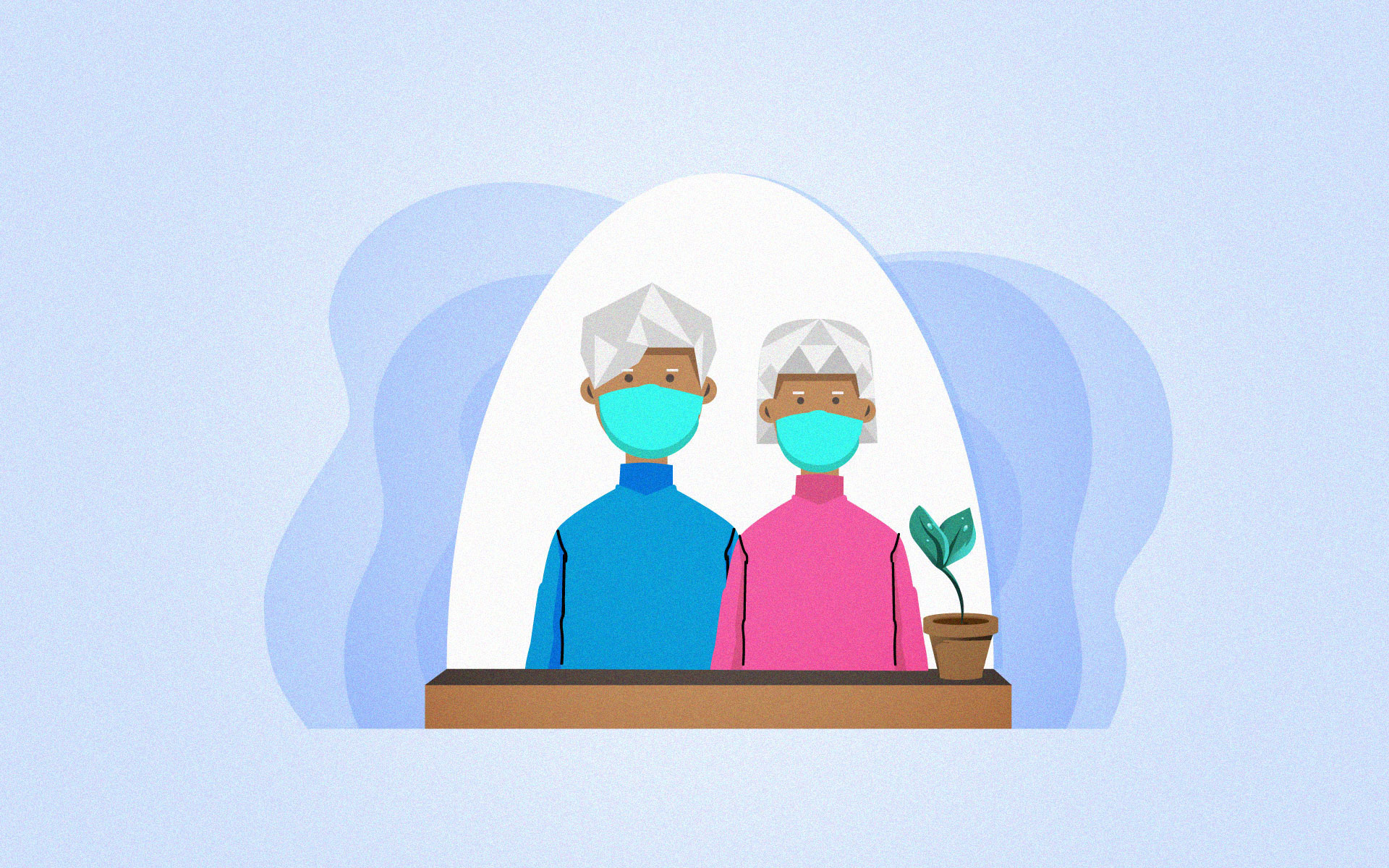The strict lockdown may have eased, but older people should still take extra care of themselves, say the experts
Even in lockdown Level 2, with its more relaxed regulations, the COVID-19 campaign posters lining the streets of Cape Town send out an unambiguous message.
“IF YOU ARE OVER 55,” they read, “PLEASE STAY HOME.”
This is all well and good, but after months of lockdown, many elderly people simply cannot afford to stay home any longer. So what are they to do?
“It’s a thorny issue,” says Professor Francois Venter, an infectious disease doctor based at Wits University. It’s thorny because the stakes are so high.
According to Prof Venter, the mortality rate starts to creep up in people over 50, rapidly increases over 60, and “is insane” over 80.
“Until the medical profession has a better handle on this virus, seniors should remain physically distanced while it’s raging, and anyone who is vulnerable should try to protect themselves wherever possible,” Prof Venter says.
Everyone is at risk of contracting COVID-19, but older people face significantly more risk of developing severe illness if they become infected.
Professor Lucille Blumberg, deputy director of the National Institute for Communicable Diseases (NICD)agrees, stating that “members of the 65-plus group are well represented for severe diseases and a fatal outcome” in the hospital data collected by the institute.
This is due to age, she explains, as well as the fact that older people are more likely to have underlying medical conditions and comorbidities, such as diabetes, hypertension and cancer.
Prof Venter fears that the easing of restrictions may create a feeling that it’s now safe for older people to return to work – and this false sense of safety could put seniors even more at risk.
“If I were an older person or diabetic, I would be extra-careful now,” he warns. “COVID is still here and still deadly. You can make work much safer – physically distancing, wearing cloth masks, wiping down surfaces, opening windows and so on – but practically, I advocate keeping anyone in a high-risk category, especially seniors, behind closed doors for as long as possible.”
The question is, how long is “as long as possible”?
“Think years,” Prof Venter says. “Well, until we have a vaccine or better drugs or sufficient herd immunity, which may not happen. I know that this sounds insane, but the risk spikes remarkably as people creep into the elderly group.”
Prof Blumberg acknowledges that it was critical to ease the lockdown restrictions in order to get the economy going, but it does mean that the country is likely to experience an increase in infections.
“COVID-19 will be with us for a long time and there will be clusters, outbreaks, and even a second wave. In the absence of an effective vaccine, vulnerable groups need to be protected,” she says.
She recognises the loneliness that lockdown has brought and understands that many seniors who have a lot of experience to offer and have been out of social and economic circulation for months are itching to return to work.
Of course, it’s not possible for everyone to work from home, and if seniors need to return to work, Prof Blumberg’s advice is for them to step back from the frontline and any roles that increase the risk of getting COVID-19.
“Older people don’t have to be on the frontline. They they can use their considerable experience and knowledge in essential support roles,” she says. “If they go back to work, it’s important that they don’t have direct contact with the public, keep a distance from their colleagues, limit interactions and work in well-ventilated offices.”
Prof Blumberg also urges the elderly to manage any underlying conditions they may have, and not to avoid seeking health care.
“It is important to take responsibility for your health, be pragmatic and use common sense,” she says. “You don’t have to be locked up. Just make sure that when you do go out, you take extra care.”

Leave a Reply